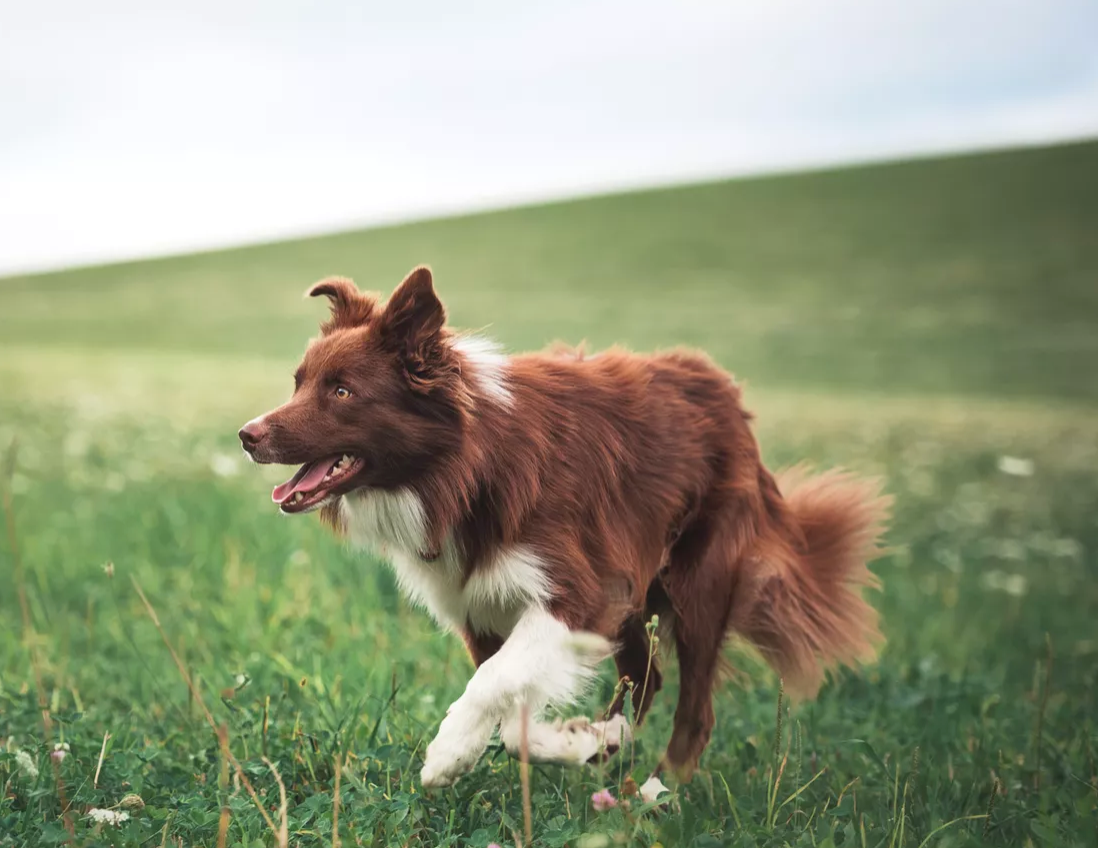Hip dysplasia in is dogs something no pet parent wants to encounter. Dog hip dysplasia is a painful illness that can affect dogs at any age. But advances in veterinary medicine have come up with management and treatment to help your furbaby live a happier and healthier life. In this article, we will talk about what hip dysplasia is, what causes hip dysplasia in dogs, and dog hip dysplasia treatment options.
What is Hip Dysplasia in Dogs and What Causes it?
Hip dysplasia in dogs occurs when a dog's hips do not develop the way that they should and it allows to somewhat of a dislocation of the hips. Most of the time, hip dysplasia in dogs is a genetic condition particularly occurring in large breed dogs. Commonly diagnosed breeds include St. Bernards, Golden Retrievers, Great Danes, etc. Hip dysplasia is considered to be polygenic, meaning that several genes can influence the potential for development. But, hip dysplasia can also be caused by environmental factors. These environmental factors can include, but not limited to:
Most of the time, hip dysplasia is a genetic condition particularly occurring in large breed dogs like the St. Bernards, Golden Retrievers, Great Danes, etc.
- Sudden weight gain, obesity
- Excessive exercise putting too much strain and weight on the joints
- Injuries or trauma on the pelvis or hip area
- Dietary causes like nutritional factors
"Most of the time, hip dysplasia is a genetic condition particularly occurring in large breed dogs like the St. Bernards, Golden Retrievers, Great Danes, etc."
When do Dogs Develop Hip Dysplasia?

Every dog with a hip dysplasia case is different and is caused by various factors. For genetic causes, dog hip dysplasia can be seen as early as a few months of age. However, some cases of hip dysplasia may not show up until your furbaby has reached a certain age. Most commonly, the symptoms of hip dysplasia are recognized between one and two years old.
For other causes like environmental factors, dogs develop hip dysplasia in their middle or senior years.
What Are the Signs of Hip Dysplasia in Dogs?
Signs of hip dysplasia in dogs can appear similar to canine arthritis - like difficulty in moving and painful joints. Here are other signs that show hip dysplasia in dogs:
- Swaying walk or wobbly gate
- Limping
- Discomfort and uneasiness when touched on the pelvis or hip area
- Weakness or shrinking of one or both hind legs
- Distinguished sound coming from the hip part when walking
- Major changes in behavior; your once active and happy-go-lucky dog may refuse to stand up, become unwilling to play, and may lose interest in his daily activities.
Some dogs may not show these symptoms of hip dysplasia in dogs, so diagnosis may be delayed. However, if you see any of these signs, consult your vet immediately so they can perform some exams and x-rays for proper diagnosis, management, and treatment plan.
What Can You do to Ease the Pain?
If your veterinarian has confirmed your dog has hip dysplasia, you can discuss with the best methods of treatment for hip dysplasia in dogs pain management:
- Regularly massage your dog's hip area, rubbing slowly in a circular motion. If your dog shows signs of pain or discomfort while you're doing this, do not continue.
- Apply a warm compress on the pelvis or the hip area twice a day for 15 minutes each.
- If the weather is cold, make sure to keep him warm and dry.
- Change his regular dog bed to an orthopedic one, made specifically for dogs with hip and joint problems.
- Make sure your floors at home aren't slippery as your dog will definitely have a hard time walking through it. You can opt to lay down carpets and rags.
- Consult with your vet about hip dysplasia surgery.

Prevention and Management of Hip Dysplasia
As a pet parent, there is so much you can do to manage or prevent hip dysplasia in your dog. The following are some of the most common yet effective ways to battle hip dysplasia and get your pet on to a fast recovery.
Exercise. Exercise is wonderful for dogs and helps them keep their bodies healthy. However, not all kinds of exercises are beneficial. Avoid the strenuous ones like sprinting, playing fetch, etc. Give more focus on low impact activities like walking and swimming.
Note: When walking, remember to avoid walking on paths made from asphalt or concrete as much as possible and opt for grass. Hard surfaces and are hard on your furbaby's joints.
Nutrition. A healthy diet jam packed with nutrition will help your furbaby with proper joint health and inflammation. Foods like sweet potato, salmon, and brown rice are beneficial in boosting your dog's hip and joint health.
Joint Supplements for Dogs. Joint supplements are specially made to help reduce your dog's hip and joint inflammation and help improve cartilage. Offer trusted and high-quality supplements like the ones from Pet Parents®.
Pet Parents® Hip & Joint SoftSupps® do not act as a medical replacement or cure for hip dysplasia. However, they can help boost up your dog’s hip and joint wellness for better mobility, as hip dysplasia in dogs greatly affects your furbaby’s ability to move freely. These joint supplements for dogs are developed to improve hip and joint health for dogs of any age or breed. Our branded ingredients are more effective and efficient compared to regular non-branded ingredients. These dog joint supplements contain targeted ingredients like:
- Glucosamine HCL. It is a compound that helps create a cushion around your dog's joints. This promotes flexibility & relief from pain & discomfort.
- PurforMSM®: One of the purest forms of Methylsulfonylmethane (MSM) in the world, PurforMSM® is a naturally-occurring organic sulfur source, helping maintain cushion between your dog’s hip and joints, boiling down in mobility support, joint issue prevention, and joint stress improvement.
Hip dysplasia in dogs is one ruff illness to face. Know that there are always ways for pain management and prevention so that your furbaby can live a happier and healthier life, with more playdates and jumping all around.









